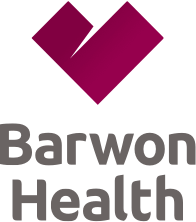Mental illness affects one in five people and there is a great need to provide better treatments for people.
Through its ground-breaking clinical trials, Deakin University’s Centre for Innovation in Mental and Physical Health and Clinical Treatment Strategic Research Centre (IMPACT) aims to support those living with a mental illness, and help them to achieve an improved and complete functional recovery.
In collaboration with the University of Queensland and Barwon Health, IMPACT is embarking on an exciting trial that will investigate the effectiveness of an extract from the rind of the mangosteen fruit extract on improving symptoms in schizophrenia.
“We’re hopeful the rind of the mangosteen fruit will help people with schizophrenia,” said Dr Olivia Dean, Director of IMPACT TRIALS. “There is new scientific evidence to suggest that mangosteen rind might benefit people with schizophrenia, with laboratory studies showing benefits in mood and intellectual functioning.”
Mangosteen pericarp, or the rind of the mangosteen fruit, is being trialled as a new add-on treatment for schizophrenia. Based on the understanding of the biology of schizophrenia, IMPACT researchers believe the pericarp treatment may assist in filling the gap between conventional medications and full, functional recovery for people.
“Mental illness affects all Australians, therefore it is crucial there are effective treatments and ample services available for continued support and management,” said Professor Michael Berk, psychiatrist and Director of IMPACT.
IMPACT would like to invite individuals to participate and potentially benefit.
“This unique trial may help determine whether this simple supplement can have a positive effect on the symptoms of schizophrenia and its associated disorders, such as schizoaffective disorder,” Professor Berk added.
To be eligible for participation in the study participants must:
“We ask each person to take two capsules a day, in addition to anything they would usually take, for a period of 24 weeks. During that time, each person will attend several interviews to see how their symptoms are going and how they’re going on the pericarp treatment,” Dr Dean explained.
If you would like to be considered for participation in the study, or would like further information, please contact Research Assistant Bianca Kavanagh on 03 4215 3301 or email [email protected].
